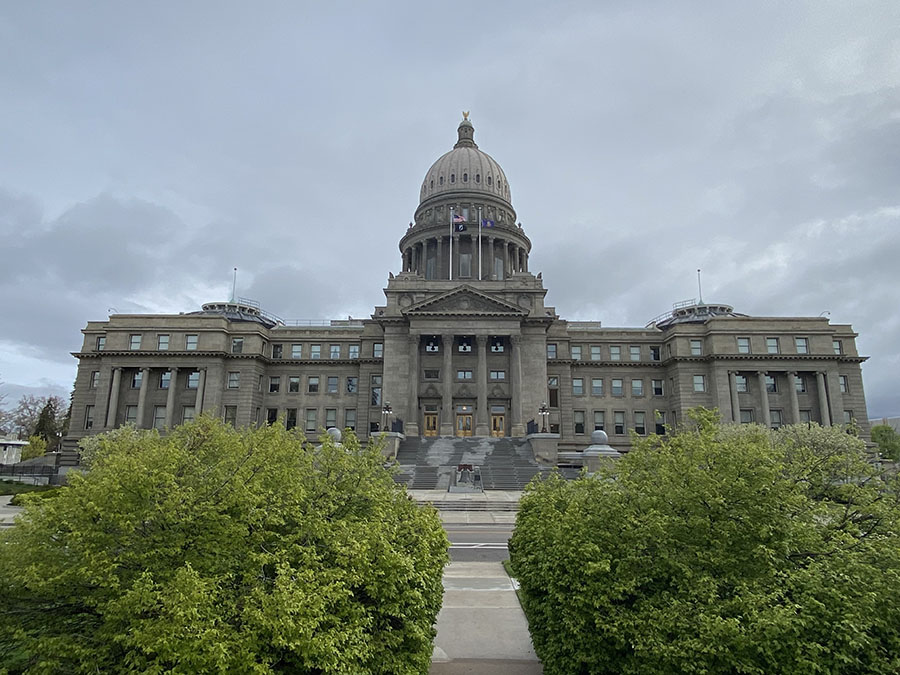BOISE (Idaho Capital Sun) – A bill that would ban public funds from paying for sex reassignment drugs and surgeries for adults and children in the state heads to Idaho Gov. Brad Little for final approval. Submitted.
House Bill 668 would ban public funds from paying for gender reassignment drugs and surgeries. This applies to Idahoans covered by Medicaid and Idaho's state insurance plan, the Idaho Capital Sun previously reported.
The Idaho Senate passed the bill on Friday with a near party-line vote. All seven Senate Democrats opposed it. Sen. Abby Lee (R-Fruitland) was the only Senate Republican to vote against the bill.
The Idaho House of Representatives previously passed the bill with 58 House Republicans in favor and all 11 House Democrats opposed.
Major medical organizations maintain that gender-affirming care is medically necessary and safe.
Idaho Medicaid primarily covers people with low incomes and disabilities, and approximately 300,000 Idahoans are insured. Approximately 62,000 Idahoans are insured by Public Employees Insurance and will be switching to a new insurance company this summer.
A recent study found that gender nonconforming people are at increased risk of low socio-economic status. The University of California, Los Angeles estimates that about 7,000 adults in Idaho and 1,000 Idahoans over the age of 13 are transgender.
Few expressed support for banning Medicaid coverage of gender-affirming care. In May 2023, he directed the Idaho Department of Health and Human Services to develop a policy that would prohibit Medicaid coverage of gender-affirming care treatments for adults and children.
The Capital Sun previously reported that sex reassignment surgery was not performed on minors in Idaho until a law passed last year banning child care. The Idaho Department of Health and Human Services, which administers Medicaid, “does not cover any gender dysphoria surgeries for adults or youth,” a spokesperson previously told the Idaho Capital Sun.
Sen. Ben Toews (R-Coeur d'Alene) told senators during Friday's floor debate that the bill would ensure that “tax dollars are not used to pay for medically harmful treatments.”
“Responding to the collapse of the world requires humility, compassion, and wisdom. We don’t have enough of these things alone. And healing is only truly possible when it comes to our Only by the power of the Creator. The answer to our suffering is not man-made, because wholeness is given, not made,” Toews said.
Sen. Melissa Wintrow, D-Boise, said the bill is discriminatory and part of a “series of bills that clearly violate the Equal Protection Clause of the Fourteenth Amendment.”
Idaho's latest gender-affirming care ban draws on a previously passed bill, but a judge temporarily blocked the bill.
Public servants and officials who intentionally violate this bill could be charged with misappropriation of public funds.
If passed, House Bill 668 would continue to allow public funding for surgeries and drugs used in gender reassignment care in certain cases, such as when necessary for health reasons. But the bill says it would exclude it for the purpose of “affirming an individual's perception” of his or her gender.
“Surgical or medical intervention, when intended to alter an individual's physical appearance in order to affirm the individual's perception of his or her gender, is never necessary for the health of the minor or adult in whom it is performed. does not correspond to biological sex,” the bill says.
House Bill 668 relies on gender-affirming definitions of medication and surgery that were in place in Idaho law until last year's House Bill 71. Enforcement of the law has been blocked during an appeals case to the U.S. Supreme Court.
House Bill 668 allows for the following exceptions to the prohibition:
- The surgical or medical intervention is “necessary to the health of the person being performed.”
- To treat infections, injuries, or disabilities that are “caused or exacerbated by … gender reassignment procedures.”
- and “if made pursuant to the good faith medical determination of the parent or guardian of a child or adult born with a medically verifiable genetic disorder of sexual development.”
If passed, House Bill 668 would go into effect on July 1.
House Bill 71, which was temporarily blocked, would ban gender-affirming care medications and surgeries for all children in the state, but would not ban all gender-affirming care, the Idaho Times said. Capital Sun previously reported. However, enforcement of the law has been temporarily blocked as a lawsuit challenging the law is being heard in court.
Under previous law, state property, facilities, or buildings could not be used “to provide surgical or medical intervention.”
Physicians and health care professionals employed by a state, county, or local government may not provide these services “within the course and scope of their (public) employment.”
The bill would ban gender-affirming medications and surgeries that are “designed to alter an individual's physical appearance in order to affirm an individual's gender identity that is inconsistent with the individual's biological sex.”
=htmlentities(get_the_title())?>%0D%0A%0D%0A=get_permalink()?>%0D%0A%0D%0A=htmlentities('For more stories like this, be sure to visit https: // Visit www.eastidahonews.com/ for the latest news, community events, and more.')?>&subject=Check%20out%20this%20story%20from%20EastIdahoNews” class=”fa-stack jDialog “>


